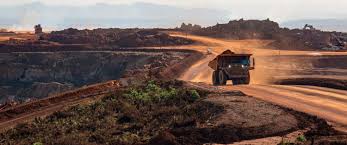
Chad is positioning itself as a prime destination for private investment in energy, mining, agriculture, and digital technology, according to Finance Minister Tahir Hamid Nguilin.
Speaking ahead of the official launch of the country’s new development strategy, Chad Connexion 2030, the minister outlined plans to accelerate economic growth and reduce poverty through private sector engagement.
“Chad has completed the political aspect of its transition. We have built peace.
Now we must move towards development and highlight our strengths,” said Tahir Hamid Nguilin, who has served as Minister of Finance and Budget since 2019 and now also oversees the Economy and Planning portfolio.
The Chad Connexion 2030 plan is a $30 billion roadmap encompassing 268 projects across infrastructure, social services, economic development, and business environment reform. Supported by the IMF, which approved $625.3 million in financing over 48 months, the plan aims to increase GDP by 60% and lift 2.5 million Chadians out of poverty.
The strategy also relies heavily on private investment, with nearly half of the program’s funding—$14 billion—expected from foreign and domestic investors.
Minister Nguilin emphasized the opportunities in key sectors: energy, mining, logistics, livestock, agriculture, and digital technology.
“We have one of the lowest debt levels in French-speaking Africa, at 32% of GDP. We will maintain this advantage by attracting private investment rather than increasing debt,” he said.
The government offers incentives including a fully digitalized tax and customs infrastructure, reduced corporate taxes, and targeted benefits for businesses in agriculture, renewable energy, tourism, and youth employment.
The minister highlighted Chad’s strategic location as a continental hub for logistics and digital connectivity. Plans include expanding electricity production through private operators, improving transport links with neighbouring countries, and developing the N’Djamena-Douala railway and Lake Chad navigability projects.
Tahir Hamid Nguilin also spoke about Chad’s natural resources and tourism potential. The country possesses significant gold, antimony, tantalum, and coltan reserves, along with vast arable land and a herd of 150 million cattle, including 10 million dromedaries. Agriculture and livestock are expected to play a central role in reducing poverty, with solar-powered irrigation helping to boost productivity.
On international cooperation, Chad maintains strong economic ties with the United Arab Emirates, including concessional loans supporting development projects. Despite regional instability and declining foreign aid, Minister Nguilin said the government’s reforms and strong sovereign ratings provide reassurance to investors.
“Chad is one of the safest countries in the region and has enormous potential. We are ready to welcome investors who meet high standards and share in the country’s growth,” he said, underlining the government’s commitment to economic modernization and private sector-led development.



